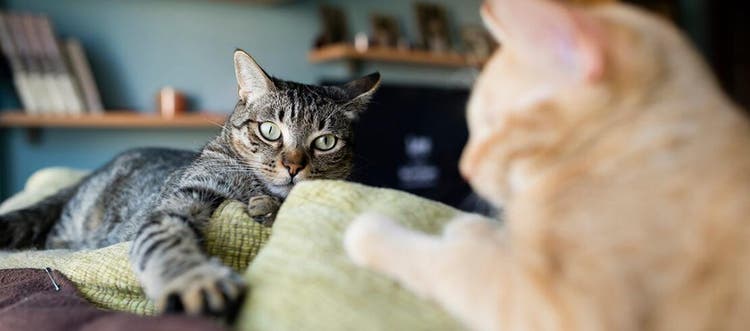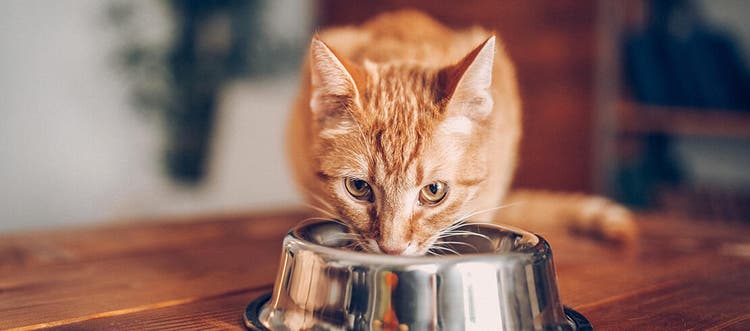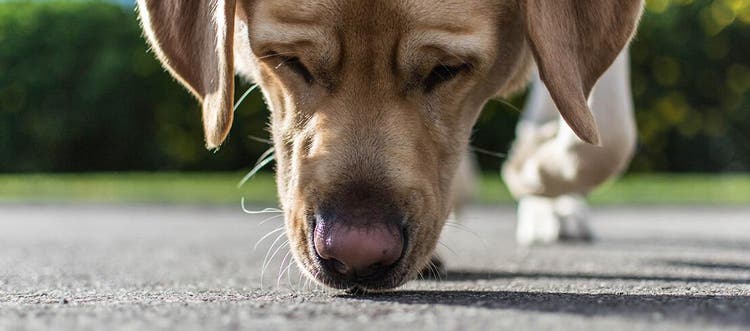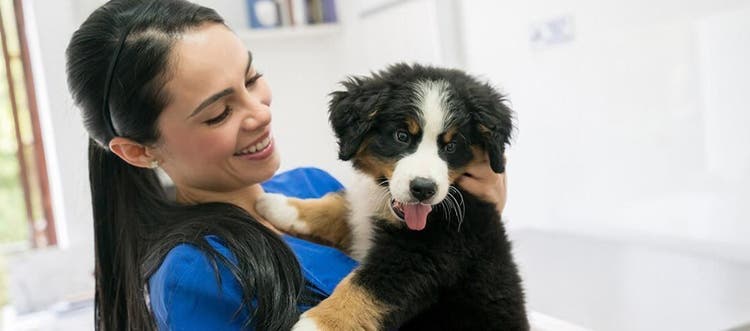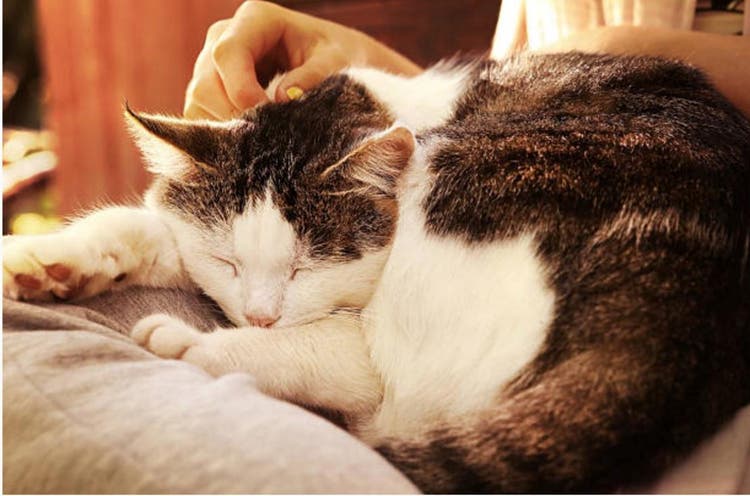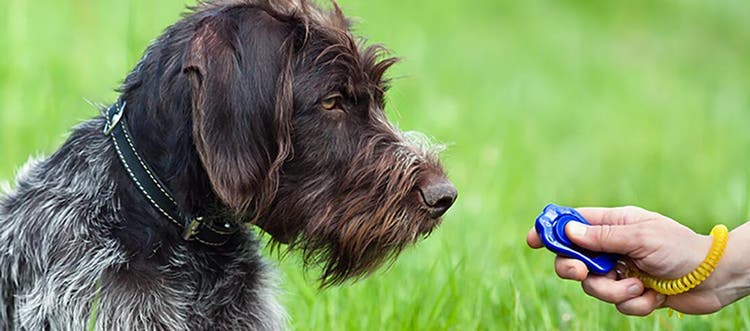Reviewed by Dr Abbie Lam DVM
Learn how to provide a balanced, nutritious diet for your puppy or kitten, how often to feed them and which foods to avoid.
Both puppies and kittens thrive on a balanced diet that changes to accommodate their age and life stage, though their individual nutrition needs can differ. Developing a healthy and nutritious diet for your new puppy or kitten will help set the foundation for their growth, energy levels and overall health.
A balanced diet for puppies
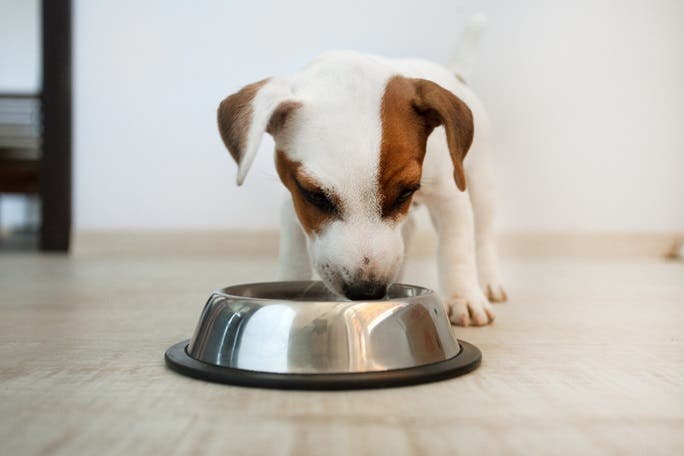
When it comes to happy and healthy puppies, a complete and balanced diet is key. When choosing a puppy food, you’ll need to consider the ingredients, serving sizes and food quality. The following guidelines can help:
Puppy formulas
Nutritious, premium-quality commercial food developed specifically for puppies will provide all the necessary nutrients to accommodate their rapid growth.
Breed formulas and size
Make sure to get the correct food for your puppy’s breed and/or size, so your puppy receives the correct amount of food and does not gain too much weight as they grow.
Clean water
Clean, fresh water is a must – avoid milk as it can cause diarrhoea. Remember to regularly change water bowls that have been sitting for more than a day.
Avoid human food
Human foods are a common cause of skin conditions, allergies and obesity in dogs. Fatty human foods like sausages and bacon are common causes for pancreatitis in dogs and must be avoided.
While you’re at it: Ask your pet health professional for advice on keeping your puppy’s teeth and gums healthy. Special diets, cleaning treats and home teeth cleaning are all great ways to keep your puppy’s teeth strong and healthy, and you should continue habits throughout their lifetime.
How often you should feed your puppy
Spread out your puppy’s meals evenly throughout the day. Here are some general guidelines for a feeding schedule for puppies that have been weaned from their mother’s milk. You should always speak to a veterinarian as each pup may have different feeding needs:
- Three to four meals per day until your puppy is 12 weeks old
- Two to three meals per day for puppies up to six months old
- One to two meals per day for dogs over six months old
When switching your puppy’s diet or moving to adult food (typically done at between 12 and 18 months of age, depending on your dog’s breed), do it gradually over at least a week. Start by feeding them 25% of the new food and 75% of their old food for a couple of days, then move to 50% old and 50% new. After that, they can move to 75% new and 25% old for a few days. Finally, transition to 100% of the new food. This gradual approach helps prevent stomach issues.
Foods you should not feed your puppy
Feeding your puppy foods other than puppy-specific formulas can cause health issues. Do not feed your puppy:
- Adult dog food (this doesn’t provide the right nutrition for a growing dog)
- Table scraps (these are typically high in fat)
- Cooked bones (can fracture teeth and perforate the intestinal tract)
Additionally, you should avoid the following dangerous foods that are toxic to dogs, including but not limited to:
- Chocolate
- Onions
- Garlic
- Avocado
- Nuts
- Grapes
Liver treats, chicken pieces or carrots are much healthier for your dog than human snacks and are just as tasty.
Kittens thrive on a complete and balanced diet
Just like puppies, kittens require special dietary considerations for nutrition and feeding frequency.
To help foster proper growth and lifelong health, follow these guidelines for proper kitten nutrition.
Kitten formulas
For the first year the best nutrition is specially formulated commercial food ‘for kittens’. Special kitten food ensures that your new pet is getting all the nutrients they require for ongoing health and growth.
Small meal portions
Feed small amounts regularly – don’t overfeed as this can cause diarrhoea, vomiting and weight gain.
Here are some general guidelines for a feeding schedule for kittens that have been weaned from their mother’s milk:
- Three to four meals per day until your kitten is 12 weeks old
- Two to three meals per day for kittens up to six months old
- One to two meals per day for kittens over six months old
Fresh water
Make sure your kitten always has access to fresh water and change it at least daily. Ideally, water and food stations should be separate, as a cat’s natural instinct is to drink away from their food bowls to avoid contamination.
Quiet, secure feeding area
Feed your kitten in a clean, secure area away from lots of noise.
Talk to your health care professional to find out what food is best for your kitten. Although home cooking may seem like a more nutritious option, it lacks a good source of omega-3 fatty acids for brain and eye development and can lead to taurine deficiencies, which can cause blindness and heart failure in kittens. Without a proper home-cooked meal plan that is approved by a vet nutritionist, you also risk nutrient imbalance, that may compromise their growth and health.
Premium-quality kitten food has the right balance of essential nutrients, amino acids, vitamins and minerals. However, not all premium foods are complete and balanced, so check the label before you buy a new food for your kitten or cat.
How often you should feed your kitten
Establishing a feeding schedule with your kitten will help them develop lifelong good eating habits and avoid unhealthy weight gain.
Here’s a suggested feeding schedule for kittens that have been weaned from their mother’s milk:
- Three meals a day when your kitten is three to six months old
- Two meals a day when your kitten is six months old, and thereafter
If you want to change your kitten’s diet or transition to adult food, do so gradually over a week to avoid possible stomach irritation. Cats are usually transitioned to adult cat food at 1 year of age. Start by feeding them 25% of the new food and 75% of their old food for a couple of days, then move to 50% old and 50% new. After that, they can move to 75% new and 25% old for a few days. Finally, transition to 100% of the new food. This gradual approach helps prevent stomach issues.
Foods you should not feed your kitten
To prevent potential health issues, don’t feed your kitten these foods, including but not limited to:
- Milk and dairy products (most kittens are lactose intolerant)
- Tuna (a steady diet of tuna can cause malnutrition and mercury poisoning)
- Table scraps and bones (fat can cause digestive issues, and bones can splinter, causing intestinal cuts or blockage)
- Dog or puppy food (doesn’t provide the correct nutrients for kittens)
Some foods are toxic to kittens and cats and should be avoided at all costs, including but not limited to:
- Caffeine
- Chocolate
- Grapes and raisins
- Onions and garlic
Nutrition is just the first step in keeping your new puppy or kitten healthy. Check with your vet to determine the best vaccination schedule for your puppy or kitten, and start a parasite protection and prevention plan to shield them from potential parasite infections in their new home.
